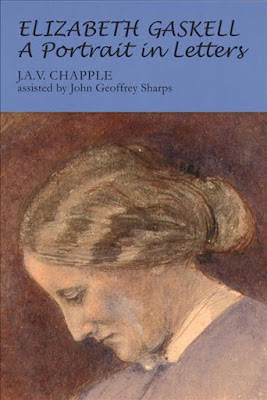Exploring Gaskell's charity work through her letters.
Gaskell’s Letters
J.A.V. Chapple, Elizabeth Gaskell A Portrait in
Letters, (Manchester: Manchester University Press, 1988.)
Chapter eight of the work is complied of Gaskell’s
charity work in her letters.
Writing to a David Grundy on the 4 December 1858,
Gaskell enquires if ‘you would be so kind as to give us a little help in this
matter, - my two elder girls wanted to
visit at the workhouse, & I applied to Mr Rickards who did not think it
desirable; but made a list of 10 old women, receiving parish relief, whom they
might visit.’
Further on Gaskell writes about the benefit of steady
employment, portraying her economic and political side that is often left out
of her work.
To Eliza Holland, Early April 1859.
‘It is hard work making one’s idea of life dear and I
am more and more convinced that where every possible individual circumstance
varies so completely all one can do is to judge for oneself and take especial
care not to judge others or for others. Else, I think a sewing club is
an error – good for the people whh sew, as it is self denying on their part, but
not doing half or a quarter so much good to others as might be done by the same
amount of self denial. The best mode of administering material charity seems to
me to be by giving employment and taking thought in adapting the kind of
employment and in helping to find out who can do it.
In 1850 Gaskell requests some work on Christian
socialism to be circulated among working people.
To William Robson, 20 February 1850
‘The pamphlet is the first of a series ‘on Christian Socialism’
proposed to be issued by the writers of ‘Politics for the People’… they are
anxious to obtain a circulation among the working-classes for these tracts.
In 1862 Gaskell writes to Vernon Lushington about how
far her money can be distributed among the poor.
‘We have been talking over how to make it go the
farthest… We think of using part of it in allowing 6d or 8d a week to the poor
old women, whom my daughters know well,- & who at present have only the workhouse allowance; barely
enough for the cheapest, poorest food – only just enough to keep life in. They
have worked hard all their working-yrs, poor old friendless women, and now
often crave and sicken after a ‘taste of bacon’ or something different to the
perpetual oat meal.’
Summary
Gaskell’s missionary work
in the poorer areas of Manchester is evident throughout her letters, and her
families concern for the health of the working classes in Manchester appears to
be genuine. Gaskell’s presentation of the Davenport’s reflects this concern.



Comments
Post a Comment